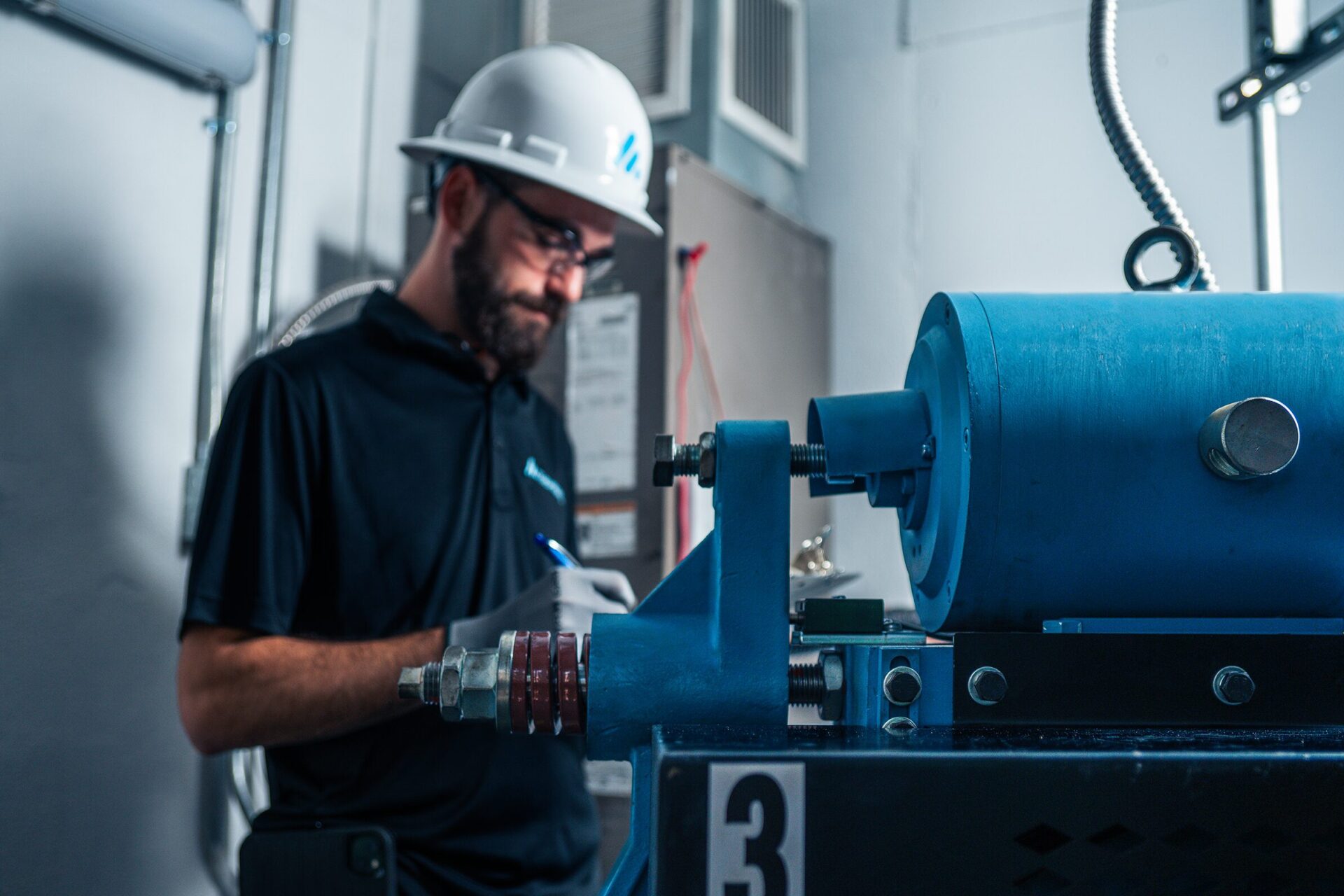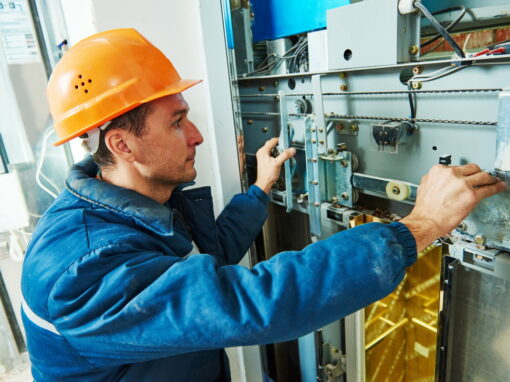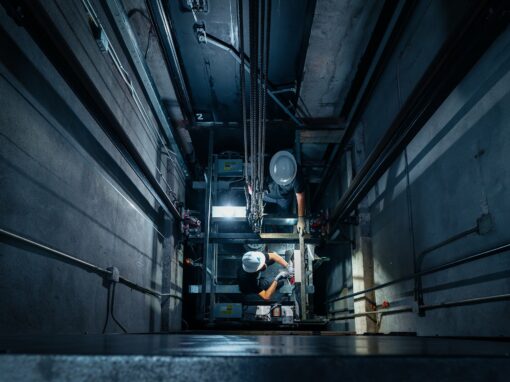A reliable elevator maintenance contract for your business is necessary to ensure passenger safety, avoid costly repairs and maintain peak operational efficiency. Proper maintenance not only safeguards passengers but also protects your vertical transportation (VT) assets, helping to extend their useful life and preserve their value over time. However, not all businesses need the same type of contract. While some might need comprehensive care, others may benefit from more tailored options.
In this guide, we’ll explore everything you need to know, including building and elevator layout, contract types and budget considerations, to help you make the best maintenance choice.
Understand Your Elevator Needs
The first step in choosing the right elevator service is to consider the type of building and elevators you have. From there, you can determine the most suitable maintenance contract, helping to avoid any costly mistakes. Regardless of elevator type, ensuring passenger safety is the highest priority.
Determine the Type of Building and Elevator
Each type of building has different usage patterns and maintenance requirements. For instance, elevators created for residential areas significantly differ from elevators used in commercial areas due to the higher traffic demands for commercial elevators. In most cases, Remember that commercial elevators and buildings with two or more stories must follow Americans with Disabilities Act (ADA) guidelines.
Elevators in industrial and healthcare facilities are designed to enhance productivity and safety. Special features are implemented for healthcare facility elevators, such as increased weight capacity and wider entrance doors to accommodate a high volume of people, wheelchairs and stretchers. Likewise, industrial elevators utilize rack-and-pinion technology to help increase productivity, allowing faster transportation of heavy tools. This is especially beneficial in large-scale construction projects, where the elevator’s higher speeds can help reduce labor costs and increase the project’s efficiency.
It’s also important to consider the type of elevators you have in your building. The two most common elevators are hydraulic and traction elevators. Traction elevators are commonly found in mid to high-rise buildings (typically defined as buildings with six or more floors) and may require more maintenance. Compared to hydraulic elevators, they are more energy-efficient.
Hydraulic elevators are typically found in low-rise buildings (commonly defined as buildings with five floors or fewer) and are much quicker to install. Their upfront and operating costs are generally lower, making them a more affordable option.
Observe Usage Frequency
Elevators in high-traffic areas, such as shopping centers, will potentially require more frequent maintenance compared to those in residential buildings with lower usage.
Determine the Age and Condition of Equipment
As expected, older elevators often need more frequent maintenance, making a full maintenance elevator contract the best choice. On the other hand, if your elevator is in
good condition and not heavily used, a standard or partial maintenance elevator contract may suffice.

Understand the Types of Elevator Maintenance Contracts
First, let’s take a moment to discover the three main types of elevator maintenance contracts. Please know that at Elevated, we offer completely customizable options to fit any building’s needs.
Full Maintenance Contracts
For high-usage or older elevator equipment that requires regular and frequent maintenance, complete maintenance agreements often offer the best solution. These contracts typically include monthly preventive maintenance, covering parts and labor, repairs, and significant parts replacements. As a premium option, full maintenance contracts come at a higher cost but offer comprehensive coverage. Optional 24/7 emergency services and yearly safety inspections are often included.
Standard Maintenance Contracts
Standard maintenance contracts cover essential maintenance tasks with some exceptions and are best suited for newer equipment or buildings with lower usage patterns. This option balances cost and coverage, providing monthly preventative maintenance and minor parts replacements with optional 24/7 phone monitoring. Yearly inspections can be negotiated to be included or billed separately, making this a balanced cost choice for moderate maintenance needs.
Limited Service Contracts
Limited service contracts provide basic maintenance, including lubrication and compliance checks, and offer a cost-effective solution for well-maintained or low-usage elevators. This lower-cost option does not include major or minor repairs or replacements, which are billed separately as needed.
Look for These Key Elements in a Contract
Service Frequency
Make sure the contract specifies how many visits will be made annually. Ensuring that the provider will conduct regular visits is essential for the safety and well-being of your passengers.
Inclusions and Exclusions
Your contract should clearly state what is covered and what is not. Typical exclusions may include:
- Vandalism: Intentional damage caused by individuals, which can impact the appearance, functionality or safety of the elevator.
- Obsolescence: Parts that become outdated or fail to meet current standards, often requiring repairs or replacements. This can include situations where the original manufacturer’s part is no longer commercially available. To repair or replace an obsolete component, you may need to refurbish the existing part or purchase an upgraded component.
- Acts of God: Any event outside of our control that may damage elevator equipment, such as floods, hurricanes, tornadoes and other natural disasters.
Emergency Services
All our contracts include 24/7 emergency services, critical for quickly addressing elevator emergencies or breakdowns. We offer three levels of emergency services for our customers, including fully covering the costs, partial coverage of costs and no cost coverage.
Additionally, we have an in-house dispatching team available 24/7, 365 days per year, to answer emergency calls.
Evaluate Contract Providers
Experience and Reputation
Look for companies with solid customer reviews, extensive experience, a track record of reliable service and certified technicians.
Availability of Parts
Check to see if the provider has access to necessary spare parts to reduce downtime and ensure that repairs can be carried out promptly.
Customization and Flexibility
Choose a provider offering flexible customization options to tailor the contract to your specific needs. Flexibility in contract terms can be beneficial as your requirements change.
Consider Your Budget
Budgeting for Maintenance
Understand the cost implications of different contract types. A full maintenance contract might have a higher upfront cost, but preventing major repairs can save money in the long run. On the other hand, you want to avoid paying for more coverage than may be necessary.
Create a Long-term Savings Plan
Evaluate how much you might save with a comprehensive contract versus lower initial costs. With careful planning and consideration, investing more upfront can lead to significant savings over time by extending your elevator’s lifespan, reducing downtime and more.
Conclusion
Choose an elevator service provider that can be customized to your specific needs. Whether you are looking for complete elevator maintenance or limited services, Elevated offers a wide range of services performed by our skilled technicians, equipped to handle all your needs. To ensure your elevator’s optimal performance, contact us today to get started!



